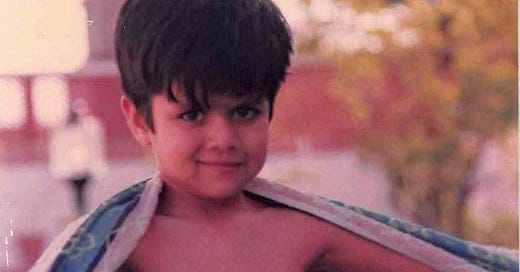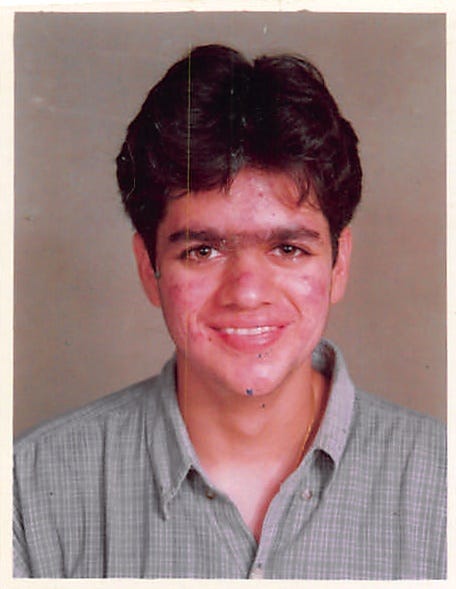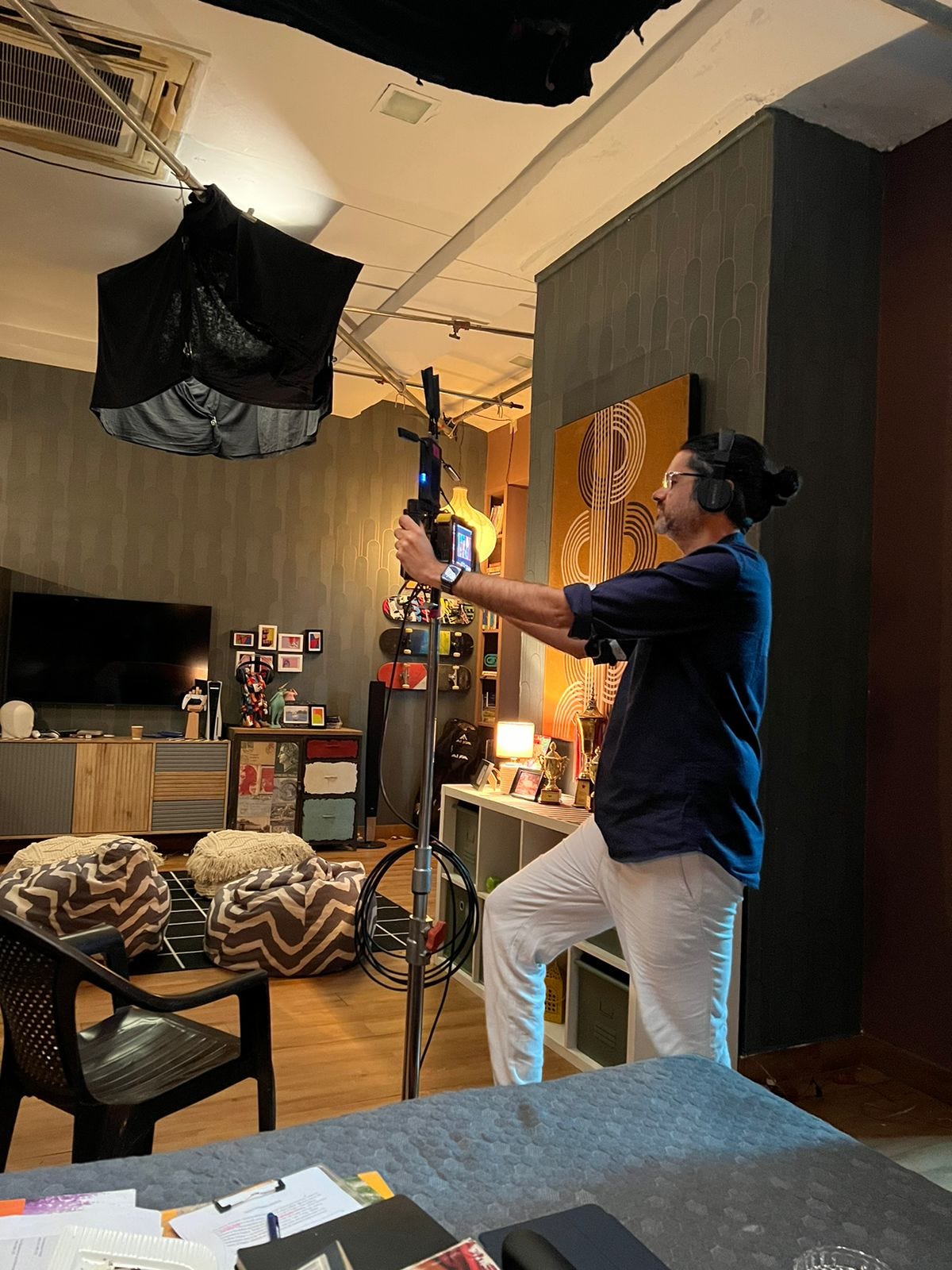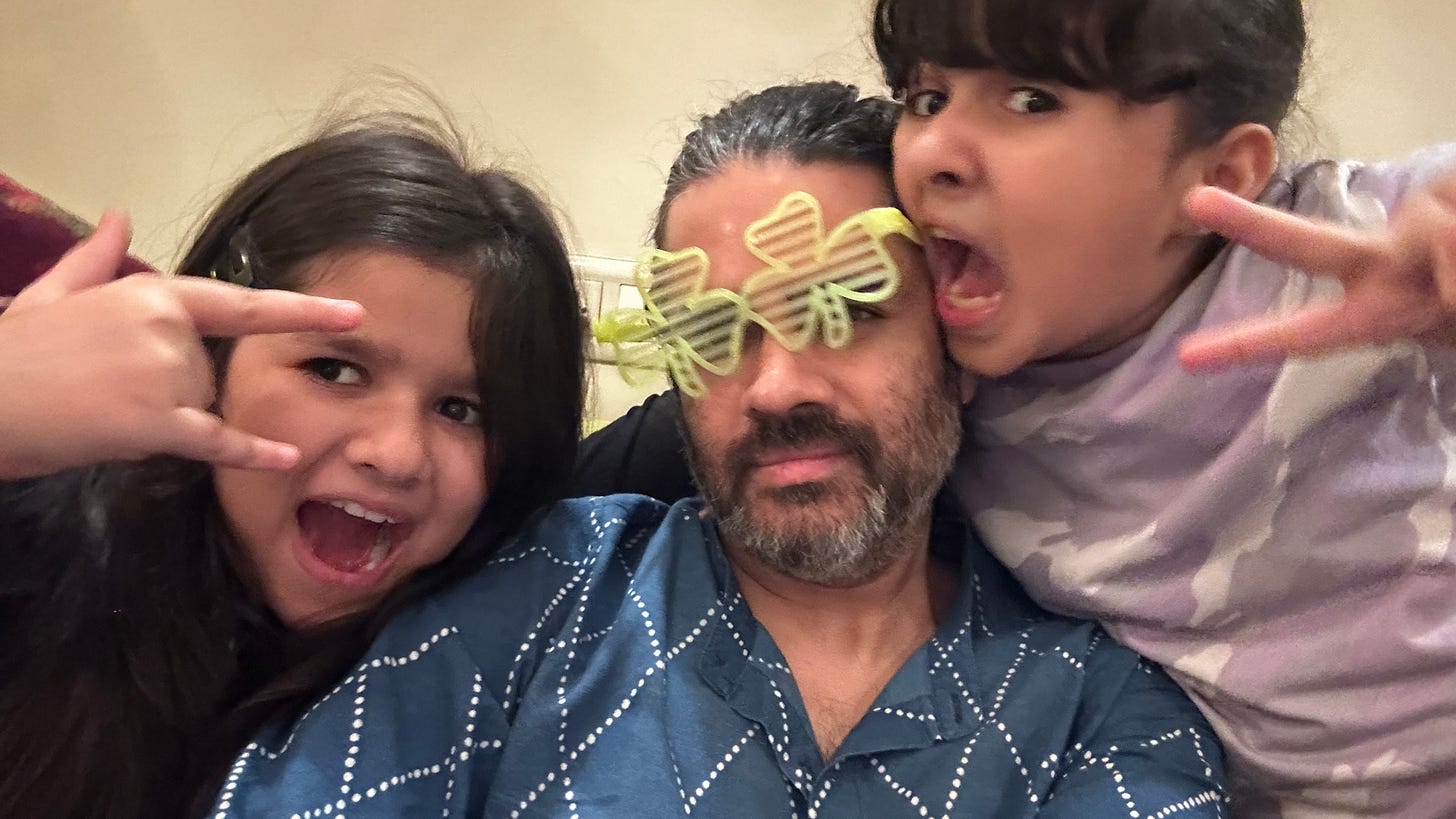Yet Untitled 073 - Melting Shame Pebbles
A conversation with my body after watching Jyoti Dogra’s “Maas”
Dearest Yet Untitler,
A long time ago, I directed a play at Uni. After the performance, I returned to my college bar to find two people seated there, dissecting the play, rapt in animated conversation about it.
Needless to say, I was pleased to no end. Art that starts a conversation is my kind of art.
It’s Saturday, and there’s something I want to say. Only this week, I’ve run into something that I’m pretty reluctant to utter. In fact, I twice considered deleting the last sentence, but eventually I let it be; remembering Janelle Monáe’s words that I quoted in my last installment:
“There is power in vulnerability”.
The thing that I find very difficult to talk about is how much of my life I’ve spent feeling unhappy about my body.
While I have written about this relationship before (see YU 036), revisiting those older writings only show me how adept I am at surfing around the bits that are most uncomfortable for me to face.
But a few nights ago, I watched Jyoti Dogra’s immensely powerful solo stage play “Maas” (trans, Hindi: ‘Flesh’). This is a bomb of a play in which Dogra approaches body-shaming from many surprising places, revealing the many violent ways in which we, living in the modern world, learn to loathe our bodies. Watching it is an internal narrative-altering experience and I feel compelled to write about it.
After watching the play, I found myself able to have a conversation with a friend about how uncomfortable I’ve felt in my body throughout my life; about the recurring voices I hear in my head that have shamed me in the past and continue to shame me inside my head, now recognizably of my own volition. I could speak to my friend about my unease when someone comments that I’ve become too thin or that I’ve put on a few pounds and about the beginnings of this perennially raw spot in my life.
When someone or something grazes this raw spot, nothing dramatic happens. Rather, I experience a subtle internal shift that can line my day (or week) with thorns. For years, this thing has held immense sway over me, but lately, it’s started losing its power. For one, its potency diminished considerably when I started comprehending that I was more than just my body. Also, I entered the fourth decade of my life having resolved (after four years of Buddhist practice) to understand my body anew. Having spent my second and third decades sensitizing my body via yoga, I was able to listen to the dispatches it sent me from its far corners, and I heard it telling me various things. Things like:
“Buddy, I appreciate exercise but does it have to be murder?”
Or
“You don’t have to stuff me with food just because the clock says it’s time to do so!”
I listened.
I listened, and we became better friends, my body and I. But on some days I still found myself being a bad friend.
Let’s reflect: what is a bad friend? Or dad? Or spouse?
I consider myself a bad friend, dad or spouse when I disengage with my friend, child or partner upon the relationship becoming difficult. Reflecting, I consider - isn’t our tryst with our body is the OG long-term relationship we’re all born into. Thinking about it, I can see that like my other long term relationships with my longtime pals, my kids and my spouse, this relationship is also testing; and it’s usually during such testing times that I feel I’ve let my body down.
What’s that bulge?
A friend saw this photo above and said “nice picture”. I saw this photo and said “What’s that bulge?”
Like any friend, child or partner - my body has good days and bad days. On bad days, it doesn’t look, feel or do its best. On those days, I sometimes forget all its good traits - its ability to bounce back, recover, respond, to cross its limits, to surprise me - and only focus on its inadequacies.
Photographs throw me off frequently. A defence mechanism I developed over time has been to train myself to only look in the mirror from certain angles. My gaze drops in order to avoid catching a wrong glimpse at the mirror while emerging from the shower. In the same vein, irksome photographs of the “what’s that bulge” variety are edited away from my photo albums and my life, allowing me to pretend that I exist only within the dimensions of certain viewing angles.
One day, I began the practice of consciously looking at myself in the mirror especially from the angles I avoid. After a few weeks of doing this, something hard inside me started to melt, and I even went so far as to deeply and consciously apologize to myself for the violence I’ve inflicted on my own person.
But even after this, I recently got thrown off by another one of those “what’s that bulge?” photos. Walking out of Dogra’s play, I reflected on how - despite all my positive steps to counter this tendency of mine (to essentially recoil at my own person) - it’s still got some claws in me. Surely - I consider - it can’t only be my fault. Others must have played a part in making me like this! I remember Alice Miller’s The Drama of the Gifted Child, which illustrates how traits, tendencies and traumas most often come from people close to you, and one of the first steps towards healing is to acknowledge that someone you love or trust may have been the source of a recurring problem in your life.
I have a list:
Once in a gym, someone came up to me and offered a solution to my “problem” by showing me a discreet website that sold shapewear for men.
I read in The Godfather about a man who could “only look dignified when (he) wore a waistcoat”.
A favorite teacher at school once told me how he was “embarrassed” by “the roll of flesh” I carried under my shirt.
A family member once told me that I have male breasts because I’m likely eating too much soya.
A friend’s father once greeted me with “well well, you’ve put on weight - that too in the wrong places…”
I’m looking at this list. It looks to me like a handful of pebbles I’ve simply failed to remove from my shoes all these years and have continued to walk the earth with them cutting at the soles of my feet.
But I’ll tell you this, dearest Yet Untitler. I’ve never every ever listed these pebbles outside my head before. There may be two or three people on this earth with whom I’ve spoken about them. But here I am having this conversation with myself, and nearly three hundred of you.
I think this is progress.
I have Jyoti Dogra to thank for this. Dogra wrote her play in response to her belly that just won’t go away. She said on stage that she could have hit the gym for 6 months to get rid of her belly, but instead, she chose to write Maas. By having such a powerful conversation with herself on stage, she made herself very vulnerable.
What is the power of this vulnerability? Did it free her? I don’t know; whenever I meet Dogra, I’ll be sure to ask. But I’ll tell her this for sure: whether it freed her or not, it definitely freed me. And I think she’ll be happy to know this.
But it’s not only Dogra I should thank. I also thank my daughters Ananya and Aahana, whose only response to my paunch when I emerge from the shower is to do a little dance and kiss it repeatedly 😄.
I am a very very very loved person. This shame that I carry is very small in the face of this love. As Dogra gives me the courage to look in the direction of my irksome shame-pebbles, I direct the warmth of this love in their direction…and they melt.
I forgive them all.
Thank you for listening
V
P.S. Does any of this resonate? Drop me a comment:








Well done you for being so brave and vulnerable to talk about this. In a recent therapy session, with the help of the therapist, I came up with the phrase "I am worthy of love". I now have that written on a card which I leave on the kitchen counter where I can see it several times a day. And all those parts of me which criticise me and tell me that I am not good enough are also worthy of love. Imagine how many hearts you have touched by writing this. Well done x
Thanks so much Sana. Very happy to read your comment. Interestingly - it was quite easy for me to write. It was as if I had be waiting to give myself permission to do it - it’s been a long time coming.
Sorry to hear of your very relatable struggle. If in any way my writing helps you emerge on the top other side of it, I’ll be very happy ❤️
Hope you enjoy reading the other instalments as well. Lots of love